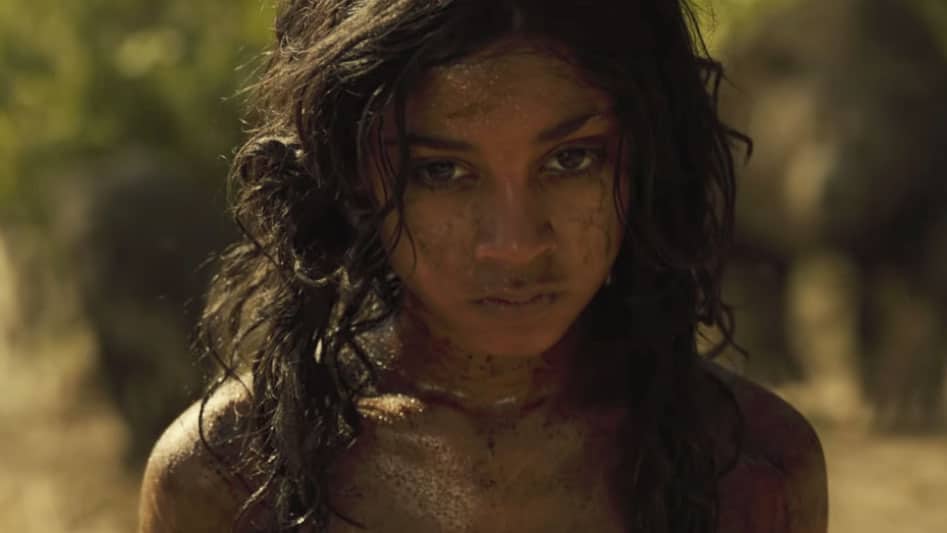Andy Serkis’ retelling of ‘The Jungle Book’ is the latest big movie to be dumped to the Netflix Originals club.
All the way back in 2014, master of performance capture Andy Serkis was announced to direct a reimagining of Rudyard Kipling’s “The Jungle Book” stories for Warner Bros. Originally called Jungle Book: Origins, the film was set to release in October 2016. Just months after Jon Favreau’s own version, a remake of the 1967 Disney animated feature adaptation.
As time went on, plans changed. The movie was delayed, then delayed again, with the reason being that more time was needed to work on the visual effects. An October 2018 release date was finally set, followed by the first trailer for the now-titled Mowgli.
But now, as reported by Deadline, Netflix has acquired the worldwide rights to Mowgli. Also announced is the fact that the movie will now premiere in 2019, with no exact release date yet revealed.
While studios offloading movies to Netflix is nothing new, this particular example is significant. This isn’t just WB dumping a niche genre film, we’re talking about a big budget blockbuster with an accomplished ensemble cast. So why the change of heart for the studio?
Well for a start, the constant delays on the project haven’t exactly shown confidence on the part of the studio. Even with all the necessary VFX work, the movie entered production all the way back in 2015. And considering the lukewarm reactions to the trailer, especially towards the effects, this reasoning doesn’t quite hold up. Upon the release of the first trailer, many people noted the uncanny valley in the animals’ faces and their strange facial movements. And with such extensive post-production time, these seem like issues that would have been ironed out by now.
Since Mowgli entered principal photography, Serkis also directed last year’s Breathe (now officially his feature directorial debut), closed out his Planet of the Apes trilogy, and appeared in two Star Wars movies. Making it appear all the more likely that the studio has just been holding on to this.
However, it’s understandable that Warner Bros. would want time to have passed between this and Favreau’s version. After all, releasing a second live-action Jungle Book months later would surely have hurt the film’s box office. With many viewers likely to confuse the two movies.
This is a problem that will surely impact Mowgli no matter how many times it’s delayed, though. At least with the new deal, audiences will come to know this as Netflix’s Jungle Book. Which isn’t exactly ideal either. Considering the work gone into the proposed 3D version, the move to Netflix has to be disheartening. And despite Serkis’ hopes of a theatrical run of some sort, the film will now mostly be seen on small screens. An issue that’s becoming more and more prevalent for filmmakers.
This year has seen a noticeable increase in studio releases turned Netflix originals. The biggest offender is Paramount Pictures, which sold off two high-profile movies to the company this year. The first was the ill-fated The Cloverfield Paradox, which had a surprise announcement at the Super Bowl, followed by an immediate release on the streaming platform. The initial excitement quickly died down, though, once people actually watched the film.
It was thought that the studio, anticipating a bomb, simply looked to wash their hands of the movie. And Netflix was happy to take it off their hands, creating an event around the release. Hoping that the expected backlash would at least come after everyone had already pressed play. And to their credit, the strategy appeared to work. Despite an overwhelmingly negative response, The Cloverfield Paradox dominated film-related discussions, for a short time at least. Enough for Netflix to consider aquisition a success.
Then came Annihilation. After testing poorly, Paramount fought with director Alex Garland to re-work the film to make it more accessible. A fight they appeared to have lost. Concerned that the film wouldn’t sell, the studio panicked and sold off the international distribution. While they still dealt with a disappointing US release, Paramount no longer had to worry about bombing internationally. And again, Netflix was more than happy to take responsibility.
And that wasn’t the first time international rights had been sold off to the streaming service. After a disastrous critical response, 2017’s The Circle was denied a UK theatrical release. Instead, the movie was dumped on Netflix with little fanfare, allowing EuropaCorp and STXfilms to drop the project. And while they would later refine the way they put out studio hand-me-downs, this was certainly a sign of things to come for Netflix.
Paramount’s hesitation to release The Cloverfield Paradox and Annihilation can also be attributed to several recent disappointments. Despite making $640 million worldwide, Transformers: The Last Knight was a financial disappointment, especially at home where it made just $130 million. It seemed after five widely disliked movies, audiences were finally ready to stay away.
Additionally, the studio also took a gamble on Darren Aronofsky’s mother!. The film divided audiences and was another financial failure, potentially putting Paramount off from allowing auteur directors to run wild. Given mother!‘s failure, the decision to either change or offload Annihilation suddenly made more sense.
Warner Bros. likely faced a similar scenario with Mowgli. On top of the numerous delays, they could have had concerns about putting out this dark reimagining. Potentially realizing the limitations of this approach from the DC movies, the studio could well have put the brakes on Mowgli to avoid putting out another film which seems confused about whom it’s even aimed at.
Studios now appear to have an easy out for “difficult” projects. The options now go beyond either scrapping movies or quietly giving them a limited release. And while this may sound acceptable in the case of bad movies, it’s a troubling trend that can bury legitimately great ones. And in the case of Mowgli can stifle plans to enhance the theatrical experience of the film.

